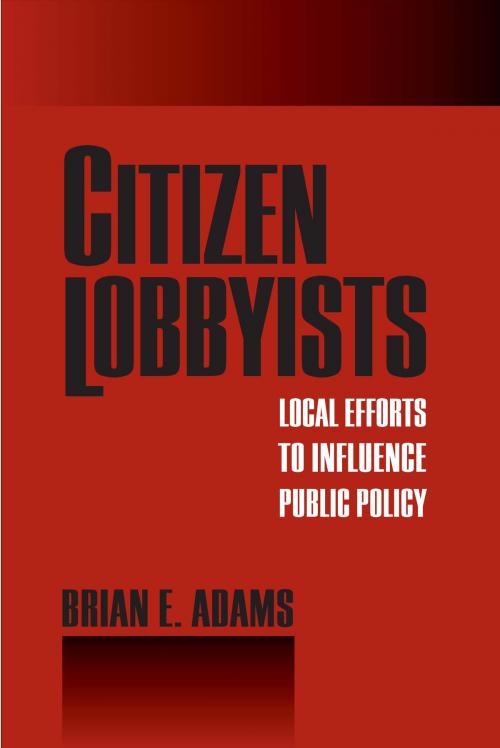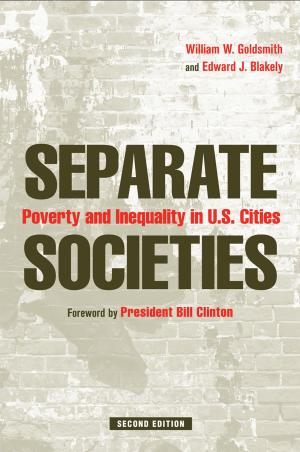Citizen Lobbyists
Local Efforts to Influence Public Policy
Nonfiction, Social & Cultural Studies, Political Science, Government, Local Government, Civics| Author: | Brian Adams | ISBN: | 9781592135714 |
| Publisher: | Temple University Press | Publication: | January 18, 2008 |
| Imprint: | Temple University Press | Language: | English |
| Author: | Brian Adams |
| ISBN: | 9781592135714 |
| Publisher: | Temple University Press |
| Publication: | January 18, 2008 |
| Imprint: | Temple University Press |
| Language: | English |
Citizen Lobbyists explores how U.S. citizens participate in local government. Although many commentators have lamented the apathy of the American citizenry, Brian Adams focuses on what makes ordinary Americans become involved in and attempt to influence public policy issues that concern them. It connects theory and empirical data in a new and revealing way, providing both a thorough review of the relevant scholarly discussions and a detailed case study of citizen engagement in the politics of Santa Ana, a mid-sized Southern California city. After interviewing more than fifty residents, Adams found that they can be best described as "lobbyists" who identify issues of personal importance and then lobby their local government bodies. Through his research, he discovered that public meetings and social networks emerged as essential elements in citizens' efforts to influence local policy. By testing theory against reality, this work fills a void in our understanding of the actual participatory practices of "civically engaged" citizens.
Citizen Lobbyists explores how U.S. citizens participate in local government. Although many commentators have lamented the apathy of the American citizenry, Brian Adams focuses on what makes ordinary Americans become involved in and attempt to influence public policy issues that concern them. It connects theory and empirical data in a new and revealing way, providing both a thorough review of the relevant scholarly discussions and a detailed case study of citizen engagement in the politics of Santa Ana, a mid-sized Southern California city. After interviewing more than fifty residents, Adams found that they can be best described as "lobbyists" who identify issues of personal importance and then lobby their local government bodies. Through his research, he discovered that public meetings and social networks emerged as essential elements in citizens' efforts to influence local policy. By testing theory against reality, this work fills a void in our understanding of the actual participatory practices of "civically engaged" citizens.















